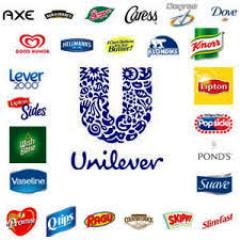 Anglo Dutch firm Unilever’s offer to buy back shares in its Indian arm, Hindustan Unilever, closed on an ‘encouraging’ note on Thursday.
Anglo Dutch firm Unilever’s offer to buy back shares in its Indian arm, Hindustan Unilever, closed on an ‘encouraging’ note on Thursday.
Unilever’s Rs 29,200-crore (Rs 292-billion) voluntary open offer, the largest so far, was intended to increase its stake in HUL from 52.48 per cent to up to 75 per cent, the maximum a promoter can own in a listed company.
About 320 million shares were tendered by investors for the 487-million-share open offer, around 65.71 per cent of the buyback issue.
After the open offer, Unilever’s stake in HUL will increase to 67.28 per cent from the current 52.5 per cent.
Unilever will have to pay Rs 19,202 crore (Rs 192.02 billion) to investors at Rs 600 a share. At Thursday’s exchange rate, this will lead to inflows of $3.19 billion into the country.
Unilever CEO Paul Polman said: “We are pleased to have received such a good response to our voluntary open offer and that -- as a result -- we will significantly increase our stake in Hindustan Unilever, an excellent Indian business with a proud heritage and the potential for attractive long-term growth.”
The company said in a release the payment for shares tendered and accepted will be completed on or before 18 July, at which point Unilever Plc would acquire full beneficial ownership of the shares tendered and accepted in the open offer.
It wasn’t clear whether large institutional shareholders like Aberdeen and LIC gave away their shares, though the market was abuzz with speculation that LIC and other state-owned banks were ‘nudged’ to part with a portion of their holdings, to stem the rupee’s fall.
Analysts said the response to Unilever’s
When HUL had announced the open offer on April 30 at Rs 600 a share, the price was at a 20 per cent premium to the prevailing price.
However, the stock later rallied substantially.
The HUL scrip, after touching its all-time high of Rs 605.2, on Thursday closed at Rs 600.75 apiece, up 2.27 per cent over its previous close and slightly above the issue price.
Compared with the sector average of 30 times price-to-earnings multiples, HUL trades at a higher 36-38 times its estimated 2013-14 earnings.
The Rs 5,220 crore (Rs 52.20 billion)-open offer made by GlaxoSmithKline to raise its stake in its Indian arm, GSK Consumer Healthcare, earlier this year, had received 91 per cent subscription, helping the parent raise its stake from 43.2 per cent to 72.5 per cent.
Both GSK and Unilever open offers were managed by HSBC. McGraw-Hill Financial, too, has announced a Rs 1,900-crore voluntary open offer to buy an additional 22.5 per cent in domestic rating agency CRISIL.
Analysts said the weakness in the market after the US Federal Reserve’s announcement of tapering of its stimulus, which coincided with the open-offer opening, sweetened the deal for investors.
Also, a host of brokerages, including CLSA, IIFL and Nomura, had a bearish view on the HUL stock as consumer demand had softened.
They had recommended their clients to tender their shares in the open offer.
The CLSA note had said that the current valuations of HUL looked rich, considering 10 per cent growth in earnings.
A note by Nomura had said the volume growth for the company could come down from its long-term average of nine per cent to six-seven per cent.












 © 2025
© 2025